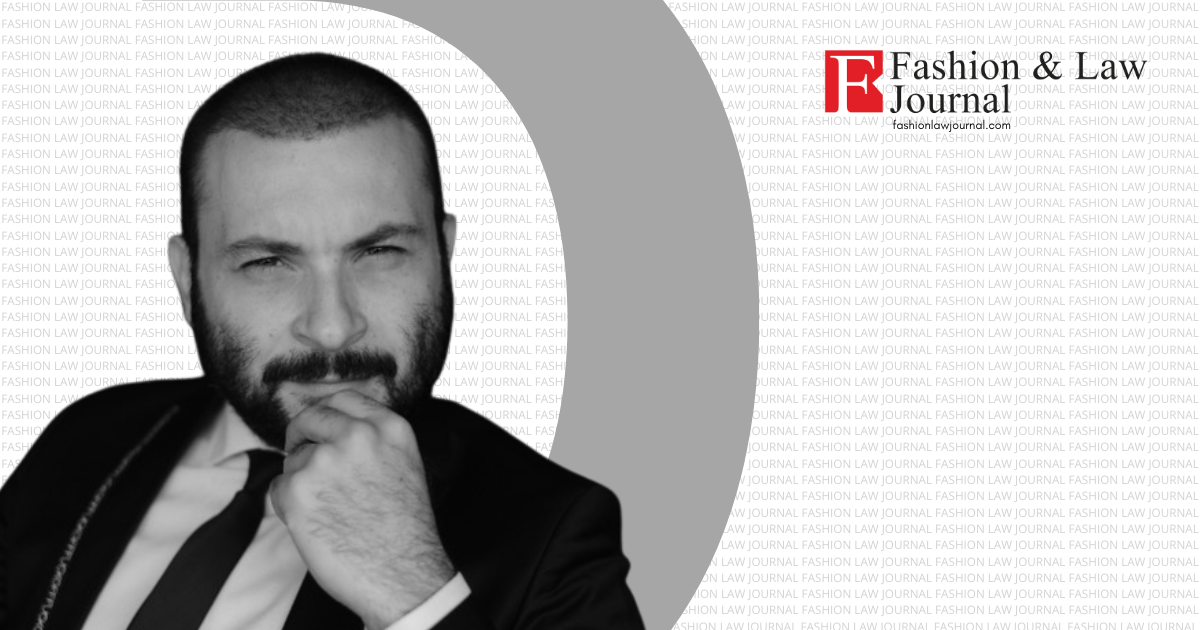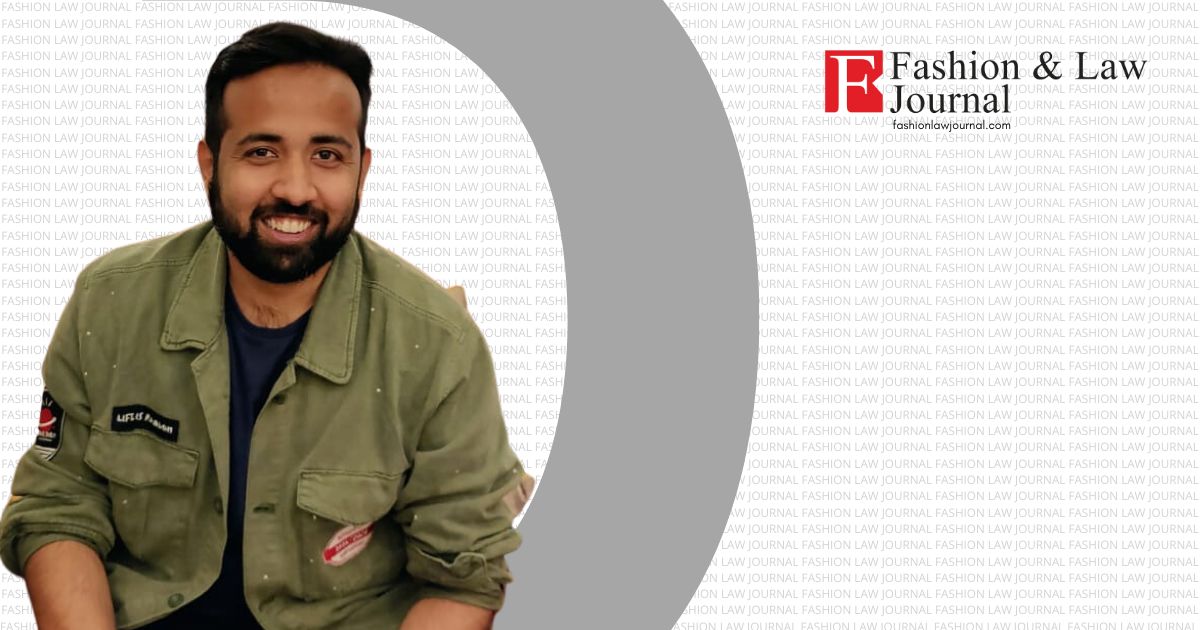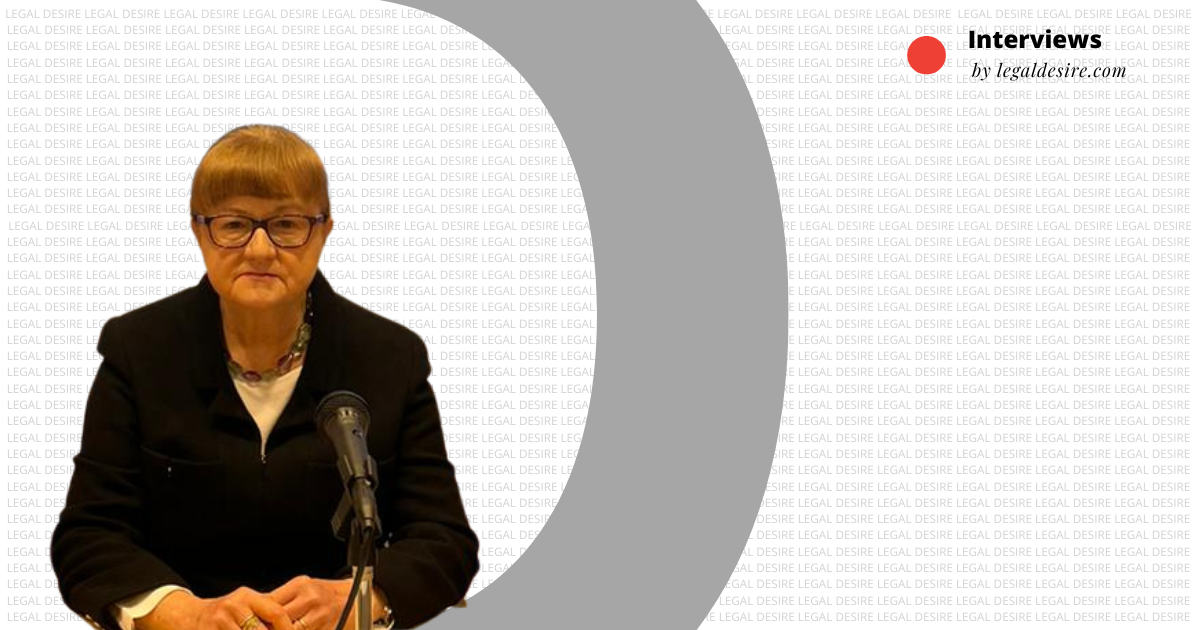Erdem Eren, Founder of Fashion Law Institue Istanbul, completed his bachelor and master’s degree in law, later, he started his own legal firm in Istanbul. During the first few years of his profession he realized that he wanted to use his talents from creative industries hence, moved Paris for studying Fashion Management and Marketing. After working with important brands in the textile and fashion industry in his own law firm, he decided to establish first and the only institution in the field of fashion law, Moda Hukuku Enstitüsü or known as Fashion Law Institute Istanbul (FLII) in 2012. Couple years ago, he moved to Miami for continuing the career in the US and became Board Chairman of International Fashion Law Association (INFLAA) which is located in NY. Mr. Eren discussed his journey and about the FLII with Apoorva Mehta, Executive Manager, Fashion Law Journal.
What inspired you to pursue this field?
Law is a discipline that intersects with every field and also forms the basis of every field. I can say that this is one of the reasons why I chose law. Fashion Law was a concept that did not exist in Turkey before 2012. After working my clients in the fashion and textile sector and meeting many designers who approached my office for issues such as design protection, company management, expanding abroad, and e-commerce, I researched the legal literature in fashion law that can meet these needs. Accordingly, I found Fashion Law Institute in Fordham University and contacted them. This was my first step. Then, my team and I created the infrastructure on how we can implement this system in Turkey and our story started in 2012.
Tell us about the Fashion Law Institute, Istanbul?
As the second institute established in the world after US in the field of fashion law, we started this journey in 2012. As Fashion Law Institute Istanbul, we spent our first year with infrastructure works, interviews with academies and taking the opinions of our esteemed professors. In 2013-2014, we organized great numbers of free fashion law seminars. In 2014, we opened the Fashion Law Certificate Program for the first time in Turkey, in collaboration with Vakko Esmod Fashion Academy. In the same year, we started our corporate trainings. We provided special trainings for buying, merchandising, VM and design departments and managers of the Turkish leading fashion brands such as Defacto, Koton etc. For the last 5 years, we have been organizing Fashion Law 101-201 trainings twice a year. We also have Fashion Management trainings and case studies. Since 2014, our classes have always been full and we have had students and colleagues who always wanted to learn more about fashion law. We trained approximately 4.000 people about fashion law.
In addition to individual and corporate training, we provide legal consultancy to brands and textile companies.
What are the legal challenges with respect to fashion industry in your country?
The cases we face most are those of infringement, as you can imagine. Turkey is a very strong textile country, however, at the same time, unfortunately we are strong in knockoffs too! The size of the counterfeit market in Turkey exceeds $ 20 billion. Due to knockoff products, the state has 7.2 billion dollars of tax loss, while approximately 100 thousand people cannot be employed due to the existence of this market. According to reports published by OECD and EUIPO in 2016, Turkey is the second largest country in terms of the counterfeiting after China and 1% of Turkey’s exports consist of counterfeit goods.
In Turkey, we are experiencing serious difficulties in practice rather than in theory. In the Industrial Property Law that came into force in 2017, how to protect industrial rights such as trademark, design and patents, and sanctions of violations of these rights are systematically regulated, although there are points to be criticized. However, the problem arises in practice in Turkey. There are strong and efficient laws in theory, but implementation is very, very troubled. Brand owners and consumers give up often searching their rights by saying: “I will have to deal with for years, never mind.” Also, those who have courage and file suit, regret sometimes that, since the costs increase year by year and it takes 3-5 years to have a result. So, the problem is not the law in Turkey, but the process should be modified and facilitated.
Which is the most interesting case you’ve come across so far?
The keyword case between Probendi and Apple. In 2015 The Dublin, Ireland-based software development studio Probendi filed a lawsuit against Apple over the name ‘iWatch’ since Apple used this keyword in the paid promotion on Google search ads. So, when a person googled ‘iWatch’ term, Apple’s official website appeared. However, Probendi was trademark holder of ‘iWatch’ while Apple’s smartwatch named Apple Watch. Probendi’s complaint was as follows: “Apple has systematically used iWatch wording on Google search engine in order to direct customers to its own website, advertising Apple Watch.” This is approximately $97 million worth legal case since an audit commissioned by Probendi valued ‘iWatch’ the trademark at that price. I believe that this sums up the current relation between fashion, fashion law and technology.
What do you think are the consumer protection issues with respect to fashion?
First of all, issues related to fashion products are important. As we all know, production quality is crucial for not only aesthetic perspective but also for the human health. Materials should not harm fashion consumers. Cheap materials can cause skin related problems and health issues. Also, price gouging is one of the issues that we have to confront specially throughout the pandemic. Some retailers take advantage of spikes in demand by charging exorbitant prices for necessities such as masks, protective clothing. In such cases fashion law is here to protect customers and lately social media help more than we can imagine. Consumers use social media as a special alert system that enable us to track the responsible people.
What is the sustainability framework for the fashion industry in your country?
As in the world, we are still trying to improve our current environmental law according to the needs of the era that we are living in. Unfortunately, fashion and textile industry is one of the most polluting industries in the world and since the numbers are climbing up, theory can’t catch the practice as in some cases. Legal measurements can solve some problems but the most important point of this matter is to raise awareness among brands, manufacturers and consumers. However, there are some promising steps being taken for building a legal infrastructure for sustainable fashion. For example, a new regulation is about to take place in customs for the brands that export products including textile, garments and accessories. In this new regulation there will be random tests at the customs for calculating carbon footprint of the products. If the percentage is not low, the manufacturer will be fined and penalized.
What protective measures do you suggest in cases of counterfeiting?
Actually, this question should be replied in a detailed way for explaining every side of the regulations. But briefly, I can say that, in theory Copyright Law and IP Law are effective for the result that you want to have. It depends on the case. In Turkey, fashion designs can be protected as a fine art product in terms of Copyright Law, however, in some cases patterns on the fashion designs should be protected as a design patent, which is a subject of IP Law. Nonetheless, we should analyze the case in detail and decide what it is best in terms of the brand’s/designer’s benefits.
Can you throw some light on Biotechnology and law in Fashion Industry?
While the fashion industry is in search of sustainability, designers and scientists meet in the labs for creating biomaterial-based products in order to fight with the environmental pollution. With the help of biotechnology, today we can create sustainable fabrics and materials by imitating the nature and reprograming cells. The latest ‘bio-material trend’ in the sector is vegan leather. Vegan leather is kind of bio-material that can be made out of mushroom, pineapple, cereal crops, cactus. For example, leading biotechnology company Bolt Threads has launched Mylo, a sustainable and vegan leather alternative out of mycelium (as in mushrooms) that looks and feels like leather. In the beginning of this year Bolt Threads announced consortium with adidas, Kering, lululemon, and Stella McCartney, who will each be bringing vegan leather Mylo products to consumers. In this perspective, you can see fashion law in every step of the way. Since there is a new material invention in the lab, we should talk about IP Law, specially patents. Also Bolt Threads’s collaboration with fashion firms should build on a legal ground and the use of this biotechnology should be determined by law.
Lastly, if not Fashion Law, what would’ve been your career alternative?
I will definitely work with an interdisciplinary approach, connecting creative industries with another branch. For example, nowadays I’m very interested and investing in cryptoeconomy and NFTs. I may be in such kind of businesses.









